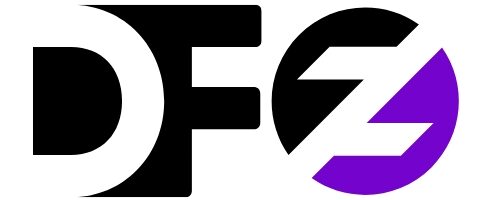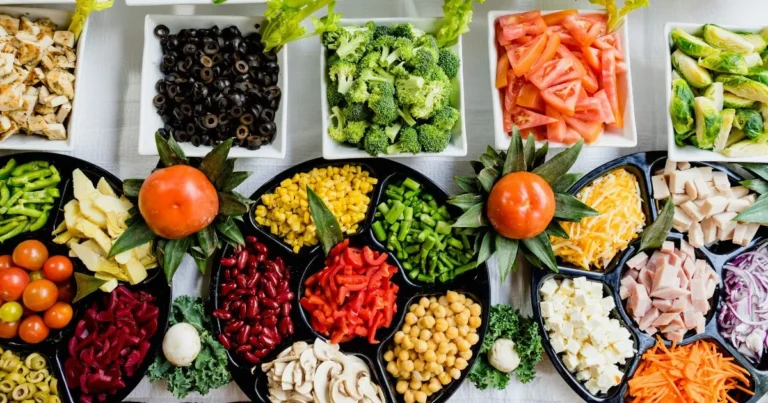7 Best Beginner Diet Plan: Easy and Healthy Eating Guide
Introduction: Starting Your Healthy Eating Journey
You’ve probably heard countless times that eating healthy is the key to feeling better, looking great, and living a longer life. But where do you even begin? With so much conflicting diet advice out there, it can feel overwhelming. The good news? You don’t have to follow a strict, complicated regimen to see real results.
Starting a beginner diet plan is about making small, sustainable changes that fit into your daily life. Whether you want to lose weight, boost your energy, or simply develop better eating habits, this guide will walk you through the basics. By the end, you’ll have a solid understanding of what to eat, how to structure meals, and the easiest ways to stick to a healthy routine.
Table of Contents
What Makes a Diet Plan Beginner-Friendly?
Not all diet plans are designed with beginners in mind. A good beginner’s diet plan should be:
- Simple: No complicated calorie counting or strict food restrictions.
- Balanced: Includes essential nutrients without extreme limitations.
- Sustainable: Easy to maintain long-term without feeling deprived.
- Flexible: Adaptable to different lifestyles and food preferences.
By focusing on a well-balanced approach, you set yourself up for long-term success instead of short-term frustration.
Essential Nutrients for a Beginner’s Diet Plan
Your body needs a mix of macronutrients and micronutrients to function properly. Understanding these basics helps you make smarter food choices.
1. Protein – The Building Block of a Healthy Body
Protein plays a crucial role in muscle growth, tissue repair, and overall body function.
- Sources: Lean meats, fish, eggs, dairy, beans, lentils, tofu.
- Benefits: Helps build muscle, supports metabolism, and keeps you feeling full longer.
2. Carbohydrates – Your Primary Energy Source
Despite the bad reputation carbs sometimes get, they are essential for energy and brain function.
- Sources: Whole grains, fruits, vegetables, legumes.
- Benefits: Provides long-lasting energy, aids digestion, and supports cognitive function.
3. Healthy Fats – Essential for Brain and Heart Health
Healthy fats are necessary for hormone production, brain function, and heart health.
- Sources: Avocados, nuts, seeds, olive oil, fatty fish.
- Benefits: Supports brain health, helps absorb fat-soluble vitamins, and promotes healthy skin.
4. Fiber – Supporting Digestion and Gut Health
Fiber helps regulate digestion, control blood sugar levels, and promote a healthy gut.
- Sources: Whole grains, vegetables, fruits, legumes.
- Benefits: Prevents constipation, lowers cholesterol, and keeps you feeling full longer.
5. Hydration – The Overlooked Nutrient
Water is essential for every function in your body, from digestion to temperature regulation.
- Sources: Water, herbal teas, hydrating fruits and vegetables.
- Benefits: Prevents dehydration, improves digestion, and supports metabolism.
Simple and Effective Beginner’s Diet Plan
Step 1: Start with Small Changes
Instead of overhauling your diet overnight, focus on simple changes that make a big impact.
- Swap soda for water or herbal tea.
- Eat more home-cooked meals instead of fast food.
- Add more vegetables to your plate.
- Reduce sugar intake by opting for natural sweeteners like honey or fruit.
Step 2: Create a Balanced Meal Plan
A structured meal plan helps you stay on track without feeling overwhelmed. Here’s an easy guide:
Breakfast
- Oatmeal with berries and nuts.
- Scrambled eggs with whole-wheat toast.
- Greek yogurt with honey and chia seeds.
Lunch
- Grilled chicken salad with olive oil dressing.
- Quinoa bowl with roasted vegetables and chickpeas.
- Whole wheat sandwich with lean protein and avocado.
Dinner
- Baked salmon with steamed vegetables and brown rice.
- Stir-fried tofu with broccoli and quinoa.
- Chicken and vegetable stir-fry with a side of sweet potatoes.
Healthy Snacks
- Mixed nuts and seeds.
- Hummus with carrot and cucumber sticks.
- Greek yogurt with fruit.
Step 3: Portion Control and Mindful Eating
Eating healthy isn’t just about what you eat, but also how much you eat.
- Use smaller plates to prevent overeating.
- Eat slowly and savor each bite.
- Avoid distractions while eating, such as watching TV.
Common Mistakes Beginners Make and How to Avoid Them
Starting a healthy diet can be exciting, but it’s easy to fall into common pitfalls. Here’s what to watch out for:
- Skipping Meals: Leads to overeating later in the day.
- Cutting Out Entire Food Groups: Can cause nutrient deficiencies.
- Relying on Fad Diets: Often unsustainable and can slow metabolism.
- Not Drinking Enough Water: Can lead to dehydration and fatigue.
- Expecting Instant Results: Healthy eating is a long-term commitment.
Beginner-Friendly Grocery List for a Healthy Diet
When grocery shopping, focus on whole, nutrient-dense foods. Here’s a simple list to get you started:
- Proteins: Chicken, fish, tofu, eggs, beans.
- Carbs: Brown rice, quinoa, oats, whole wheat bread.
- Healthy Fats: Avocados, nuts, seeds, olive oil.
- Vegetables: Leafy greens, bell peppers, carrots, broccoli.
- Fruits: Berries, apples, bananas, oranges.
- Dairy or Dairy Alternatives: Greek yogurt, almond milk, cheese.
Meal Prep Tips for Beginners
Preparing meals in advance can help you stay on track and avoid unhealthy choices.
- Cook in batches to save time during the week.
- Store meals in portion-sized containers for easy access.
- Keep healthy snacks available to avoid junk food cravings.
- Use simple, easy-to-follow recipes to make cooking enjoyable.
Conclusion – Take the First Step Towards Healthier Eating
Changing your eating habits doesn’t have to be overwhelming. By making small, mindful changes and focusing on whole, nutrient-rich foods, you set yourself up for long-term success. A beginner’s diet plan isn’t about perfection—it’s about progress.
Start today by implementing just one or two of the strategies outlined here. Over time, these small steps will add up, leading to better health, more energy, and a balanced lifestyle.
Are you ready to take the first step? Begin your journey toward healthier eating today!
FAQ – Common Questions About a Beginner’s Diet Plan
What is the best diet for a beginner?
A balanced diet with whole foods, lean proteins, healthy fats, and fiber is best for beginners.
How do I start eating healthy if I have never followed a diet before?
Start by making small changes, such as drinking more water, eating more vegetables, and reducing processed foods.
Can I lose weight with a beginner’s diet plan?
Yes! A healthy diet combined with portion control and regular activity supports weight loss.
Do I need to count calories as a beginner?
Not necessarily. Focus on eating nutrient-dense foods and listening to your body’s hunger cues.
How can I stay motivated to follow a healthy diet?
Set realistic goals, track progress, and allow yourself occasional treats to stay on track.
By following this guide, you’ll develop a sustainable approach to healthy eating that supports your goals without stress or confusion. Ready to start? Your healthier future begins now!


